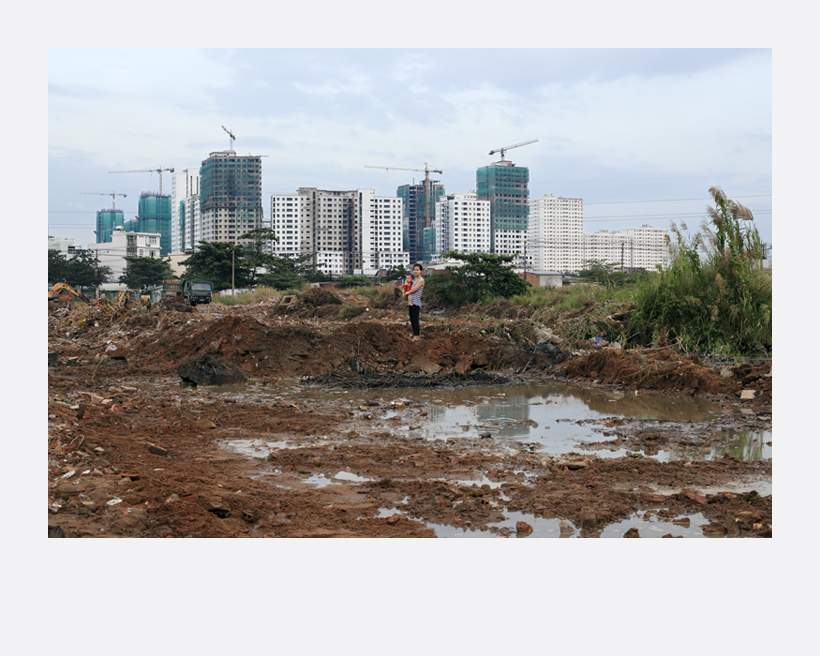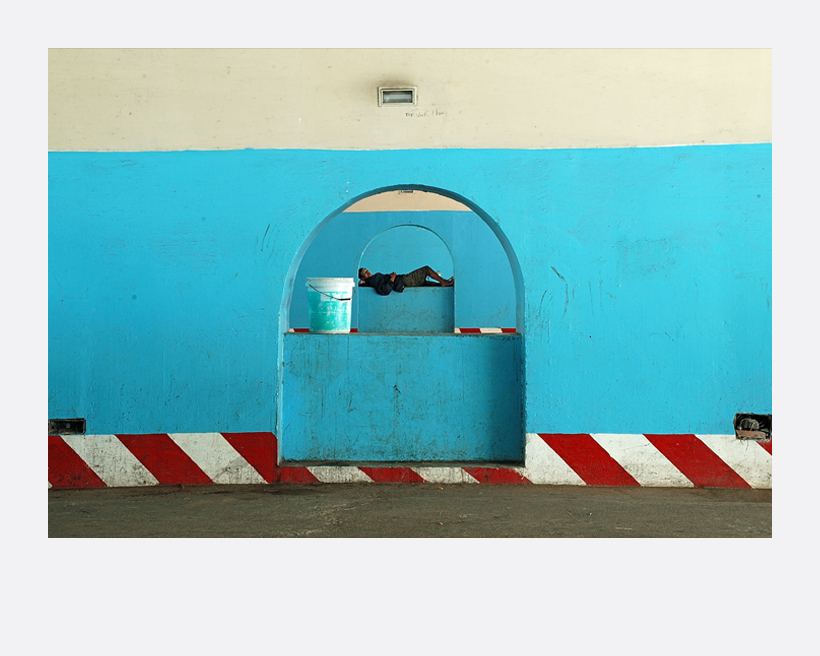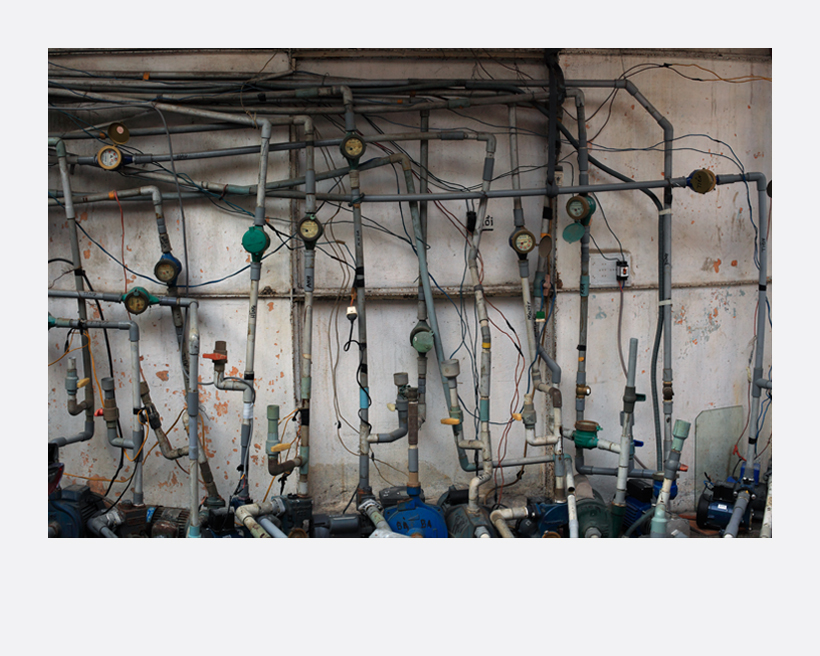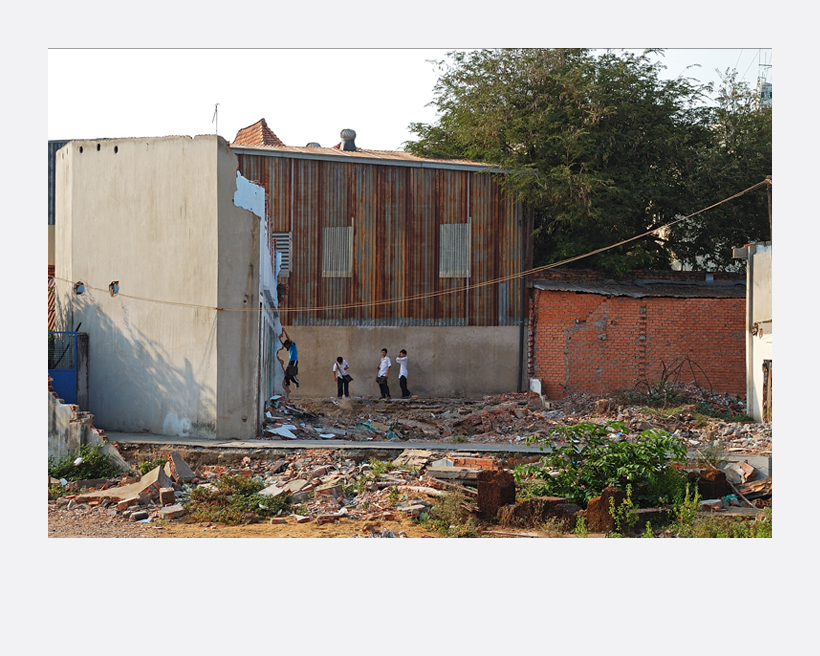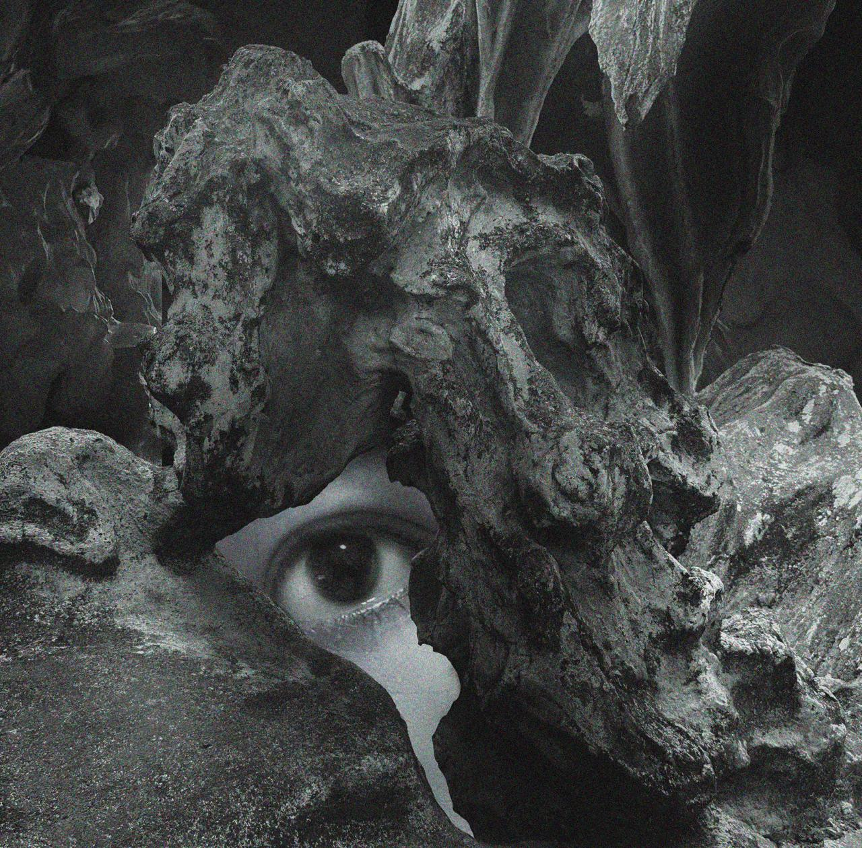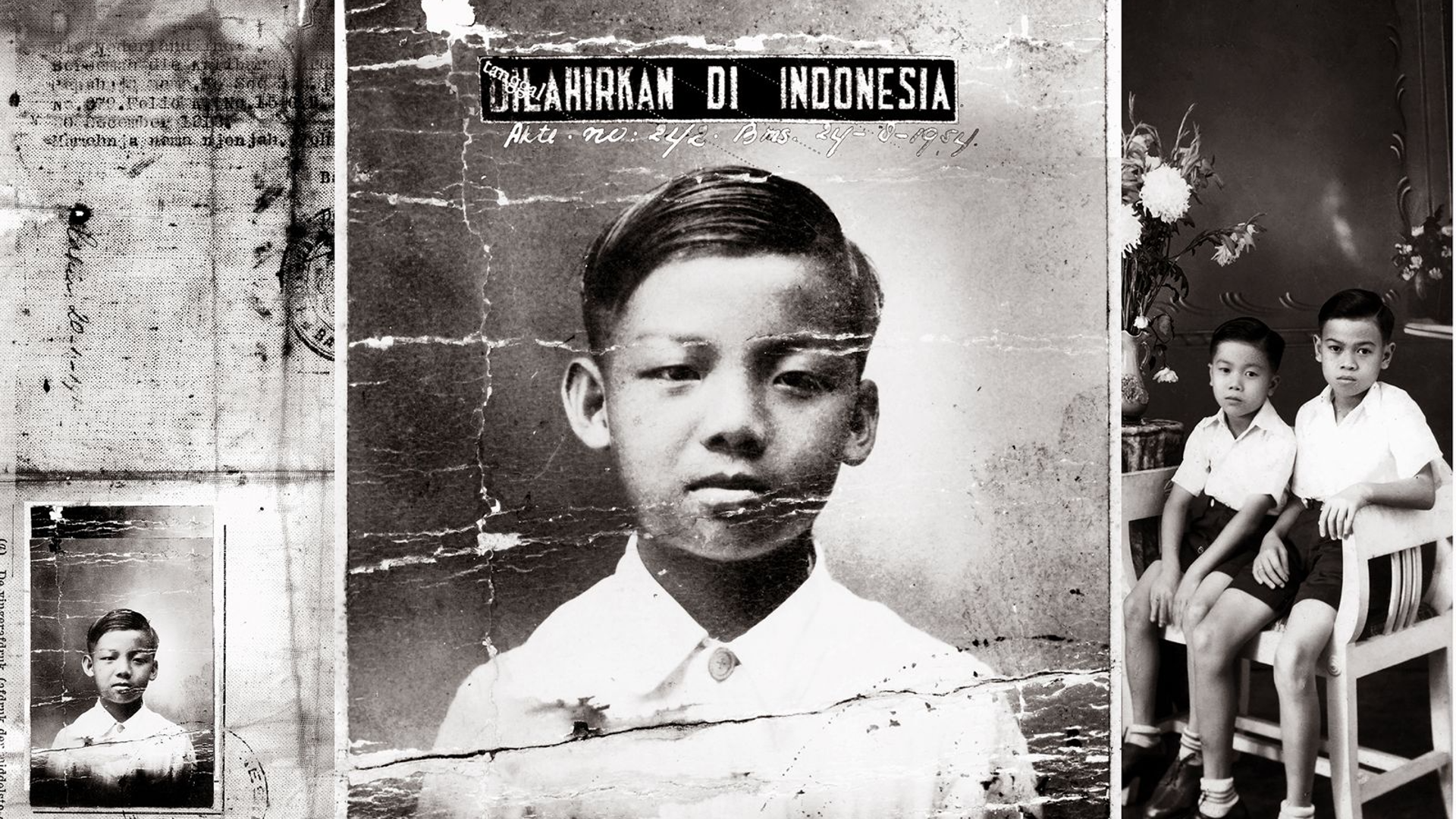All around us, our landscape is changing. As globalisation casts its spores across Vietnam, the cities face the threat of losing their individuality in the process. Destruction shadows the course of construction, upheavals accompany installations, and buildings blossom overnight. The incessant replenishing of our environment results in the formation of new landscapes, pushing the horizon far beyond urban zones. While this fills some hearts with hope, it fills others with grief and uncertainty. With the creation of new buildings, crumbling architecture and tight-knit communal spaces are deposited in their wake, becoming relics of a time that is now rapidly receding into the past. Empty fields now serve as a breeding ground for new apartment blocks. In this modern vertical living, we become detached in our own private boxes, isolating ourselves from other people and distancing ourselves yet further from nature.
Alongside the fluctuations in the landscape, sentiments and attitudes are also undergoing dramatic change in Vietnam, as people are gradually beginning to liberate themselves from the traditions and social norms that have stuck around for generations. However, with the emergence of new status symbols and cultural reference points, it leaves people in limbo between doubt and confidence. What some consider as a source of liberation cause anguish for others.
Volatile States is a reflection on the direction modern society is taking in Vietnam as it vies to keep up with the rest of the world. This series show juxtapositions and struggles that exist between old and new, the natural and the man-made. In a world that is becoming increasingly detached, the subjects to be broached are numerous if we wish to cast a critical eye.
About the Artist
Duy Phuong Le Nguyen (b. 1984, Vietnam) grew up being surrounded by photography. His parents chose that business to keep the family away from the breadline. Building from scratch, they offered their services for family events and, eventually, they opened their own modest studio. At first, the negative attitude of Vietnamese society towards photographers in general, coupled with the lack of respect shown towards his parents in particular, dissuaded him from following such a path.
After misspending his youth on dangerous games and illegal temptations in Ho Chi Minh City, he became attracted by directing and cinema. However he chose to return to photography, a calling to which he feels predestined.
After entering university to study for a degree in photography in 2006, he was selected in 2008 by Jean-Luc Amand Fournier from the École Nationale Supérieure de la Photographie d’Arles for a three-month residency. In the following year, his work is being displayed at the Musée du Quai Branly as part of the ‘Photoquai’ exhibition.
Since returning to Vietnam, he consecrates himself uniquely to the realisation of personal photographic projects. For the Holding Water project, which follows the lives of the country dwellers of Tri An Lake for five years, his style combines documentary approach and staging. He is concurrently working on several other projects in Ho Chi Minh City.
Simultaneously documentary and work of art, his photographic projects are barely noticed in Vietnam. A country where the realisation of a personal work depicting society is rare and considered of little value. Nevertheless, Duy Phuong perseveres on his road and continues to interrogate the modernisation of Vietnamese society and the intimate mutations, which come with it.
From 2012 onwards the quality of his work has started to become recognised and numerous personal and collective exhibitions have been organised by the Centre Culturel Français in Hanoi and Hue, as well as by the Sao La and Craig Thomas galleries in Ho Chi Minh City.



